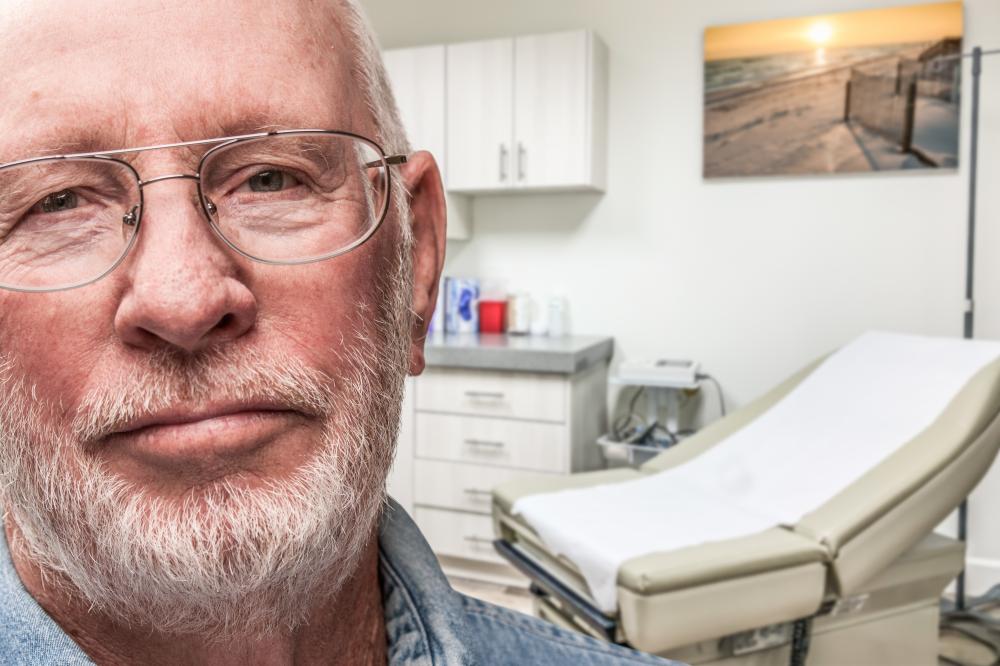Bradenton Macular Degeneration

Understanding Bradenton Macular Degeneration
At Coastal Eye Institute, the complexities of Bradenton macular degeneration become more manageable through our patient-centered approach. This condition, chiefly affecting the central vision, is more commonly observed as one advances in age, thus earning the moniker age-related macular degeneration (AMD). It significantly impairs activities like reading and recognizing faces, which can be disheartening. Our team dedicates itself to demystifying the condition for our patients, offering both understanding and hope.
Risk Factors and Prevention
The likelihood of developing Bradenton macular degeneration escalates with certain risk factors, including aging, genetic predisposition, smoking, and high blood pressure. However, it's not all predetermined; there are actions one can take to reduce their risk. Lifestyle changes, such as quitting smoking and managing cardiovascular health, play an integral part. Furthermore, a diet rich in leafy greens and fish can support eye health. It's about creating an environment where your eyes can thrive.
Nutrition and Eye Health
The intricacies of nutrition's role in combating Bradenton macular degeneration cannot be understated. Research, including the landmark AREDS study, suggests that certain vitamins and minerals may decelerate the disease's progression. Antioxidants like vitamin C and E, along with zinc and lutein, form a shield against AMD's advance. However, it's crucial to consult with an eye care professional before starting any supplement regimen, as what aids one person could potentially harm another depending on their unique health profile.
On a personal note, witnessing patients reclaim parts of their lives through improved nutrition and tailored supplement use has been profoundly rewarding. Each victory, no matter the scale, underscores the importance of our work.
The Latest Treatments
The landscape of Bradenton macular degeneration treatment is ever-evolving, with breakthroughs offering new hope. Among the most significant advancements are anti-VEGF medications. These drugs, aimed at curbing abnormal blood vessel growth, can not only halt but in some instances, reverse vision loss. At Coastal Eye Institute, our specialists are adept at administering these life-altering treatments, ensuring each patient receives the optimal outcome.
Yet, treatment is not a one-size-fits-all scenario. Each patient's journey is unique, shaped by their specific condition, lifestyle, and goals. Thus, our approach is equally personalized, blending cutting-edge science with compassionate care.
Adapting Vision and Lifestyle
Living with Bradenton macular degeneration necessitates adjustments, both big and small, to navigate daily life effectively. From modifying home lighting to embracing assistive technologies, our team provides comprehensive guidance on making these transitions as seamless as possible. The goal is to not just cope with vision loss but to thrive despite it.
Community Support
One pillar of strength for many individuals dealing with Bradenton macular degeneration is community support. Sharing experiences, tips, and encouragement with those who truly understand can be incredibly uplifting. Coastal Eye Institute fosters this spirit of community, connecting patients through support groups and educational seminars. It's a reminder that no one walks this path alone.
At the Forefront of Care
The mission at Coastal Eye Institute has always been clear - to lead the way in comprehensive eye health, including the fight against Bradenton macular degeneration. Our team of fellowship-trained ophthalmologists brings a wealth of knowledge and experience, ensuring the highest standard of care. From the latest treatments to ongoing support, we are unwavering in our dedication to our patients' vision and well-being.
Choosing Coastal Eye Institute means entrusting your care to a team that views your health holistically. It's not just about managing a condition; it's about enhancing your overall quality of life. This philosophy has nurtured trust within our community, making us a beacon for those seeking the finest eye care available.

What's the average cost for macular degeneration treatment?
Understanding the financial aspect of macular degeneration treatment is crucial for our patients at Coastal Eye Institute. The cost can significantly vary depending on the type and stage of the condition, and the specific treatments involved. Generally, treatments can range from non-invasive vitamins and supplements regimen, which could be relatively affordable, to cutting-edge injectable therapies like anti-VEGF medications, which could be more costly. It's also important to consider ongoing monitoring and follow-up appointments. Insurance coverage plays a significant role, so we always advise discussing with your provider about what options are covered under your plan. Every patient's situation is unique, and we're committed to working with you to find a manageable path forward. Have you had a chance to talk to your insurance provider about your coverage options?
What is the new treatment for macular degeneration?
One of the exciting advancements in the fight against macular degeneration at Coastal Eye Institute is the use of anti-VEGF medication. These treatments, which are administered through injections directly into the eye, have been groundbreaking. They work by blocking a protein that stimulates the growth of abnormal blood vessels in the eye, which are a significant factor in macular degeneration-related vision loss. What's truly remarkable about these treatments is not only their ability to halt the progression of the disease but in some cases, they can also reverse some of the damage and improve vision. It's a personalized approach, adjusting to each patient's specific needs and monitoring closely for the best possible outcome. Isn't it incredible how far we've come in treating this once untreatable condition?
What foods should be avoided with macular degeneration?
When managing Bradenton macular degeneration, diet plays a fundamental role. While we often talk about what to include for optimal eye health - like leafy greens and fish rich in Omega-3s - it's equally important to consider what foods might be detrimental. Foods high in saturated fats and sugar can contribute to poor cardiovascular health, which in turn can exacerbate macular degeneration. Processed foods, those high in trans fats, and excessive amounts of red meat should be consumed in moderation. It's about creating a balanced diet that supports overall health, including that of your eyes. Have you noticed how dietary changes can influence how you feel overall?
How can I stop macular degeneration from getting worse?
One of our primary goals at Coastal Eye Institute is to empower our patients with the knowledge to manage their condition effectively. While there's no absolute way to stop macular degeneration from progressing, certain steps can significantly reduce the risk and slow its advancement. These include maintaining a healthy lifestyle with a diet rich in antioxidants and omega-3 fatty acids, regular exercise, and avoiding smoking. Consistently monitoring your vision for any changes and keeping up with routine eye exams allows us to catch and address any progression early. Remember, every little step you take can contribute to preserving your vision. What lifestyle changes have you found to be most challenging?
How does smoking influence the progression of macular degeneration?
Smoking is one of the most significant, yet avoidable, risk factors for macular degeneration. It not only increases the chances of developing the condition but can accelerate its progression. Smoking contributes to oxidative stress and inflammation, which can harm the eyes. At Coastal Eye Institute, we strongly advise our patients to quit smoking as part of their treatment strategy against macular degeneration. Quitting smoking can be challenging, but it's a powerful way to protect not only your eyes but your overall health. We're here to support our patients through this process, offering resources and encouragement. Have you or a loved one considered quitting smoking?)
How important are regular eye exams for detecting macular degeneration?
Regular eye exams are paramount in the early detection and management of macular degeneration, especially as it often presents no symptoms in its early stages. At Coastal Eye Institute, we utilize comprehensive eye exams to monitor changes over time, allowing for early intervention. These exams can reveal the initial signs of the disease, even before symptoms occur, making it possible to start treatments that can slow its progression. We recommend annual eye exams for everyone, but more frequent visits may be necessary if you are at higher risk for macular degeneration. Preventive care is key to preserving vision. When was your last eye exam?
What lifestyle modifications can support eye health in macular degeneration?
Living with macular degeneration certainly requires adjustments, but with the right modifications, many individuals continue to enjoy a high quality of life. Beyond dietary changes and quitting smoking, other important lifestyle modifications include regular physical activity to improve cardiovascular health and potentially reduce the progression of macular degeneration. Protective eyewear should be worn to shield the eyes from harmful UV rays, and utilizing appropriate lighting, magnifying devices, and other visual aids can significantly help with daily tasks. At Coastal Eye Institute, we provide tailored advice to help our patients adapt their lifestyle to support their eye health and overall well-being. What adjustments have you made that have had a positive impact on your life?
Resources
- National Eye Institute - Learn more about eye health, research, and resources for various eye conditions.
- The Macular Degeneration Partnership - A non-profit organization dedicated to providing information and support for those affected by macular degeneration.
- Mayo Clinic - Macular Degeneration - Information on symptoms, causes, and treatment options for macular degeneration.
- American Academy of Ophthalmology - Resources for eye care professionals and patients, including information on various eye conditions and treatments.